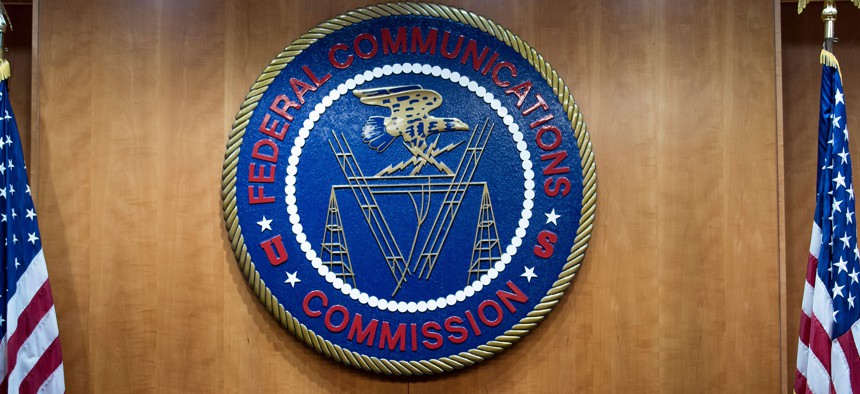FCC Proposes Rule to Boost Cell Service From Space

BRENDAN SMIALOWSKI /Getty
The proposed rule would help satellite operators and terrestrial network service providers work together to expand coverage, particularly in rural, unserved and underserved areas.
The Federal Communications Commission is creating a new regulatory framework for satellite and terrestrial networks to work together to provide additional cellular service coverage, according to a Federal Register filing scheduled to be published on Wednesday.
According to the document, the FCC will adopt a Notice of Proposed Rulemaking for a new regulatory framework for Supplemental Coverage from Space in an effort to integrate satellite and terrestrial networks to provide additional mobile coverage from satellites. This would help bring expanded coverage to wireless service providers’ customers, particularly those in remote, unserved or underserved areas as well as improve emergency communications availability.
The notice proposes a new regulatory framework for satellite operators working with Earth-based service providers to obtain FCC authorization to “operate space stations on currently licensed, flexible-use spectrum allocated to terrestrial services.” Specifically, the agency is looking to allocate some space on flexible Earth-based spectrum bands for this new supplementary cellular service, which will enable satellites to provide more service in certain geographic areas.
The proposed rule would allow a satellite operator to provide services to a wireless providers’ customers in areas where there is little or no service.
As stated in the filing, “a growing number of satellite companies are seeking to partner with mobile service providers to provide mobile satellite services through interoperable technologies. Such an approach proposes to rely on satellite operators using spectrum currently allocated for terrestrial mobile service that is exclusively-licensed to terrestrial service providers and subject to an existing terrestrial service regulatory framework, and therefore requires further Commission action to enable satellite use.”
The FCC is limiting this proposed rulemaking to authorized non-geostationary satellite orbit operators to apply for the use of certain bands if some requirements are met. However, the FCC is considering potentially expanding the framework beyond its initial prerequisites.
The licenses are also limited to geographically independent areas: the United States—both the contiguous U.S. as well as Hawaii and Alaska—American Samoa, Puerto Rico, the U.S. Virgin Islands, Guam and the Northern Mariana Islands.
The agency is considering whether it needs to change its leasing rules and how its service rules will apply to operators and providers.
The FCC also wants input on how U.S. emergency response systems like 911 or the Wireless Emergency Alerts could utilize SCS.
The FCC is looking for comments on a variety of topics, including on which bands providers are interested in testing SCS capabilities and the type of communication that would be tested, as well as how the initial rulemaking limitations could be expanded.
Comments are due 30 days after the notice’s publication in the Federal Register.






